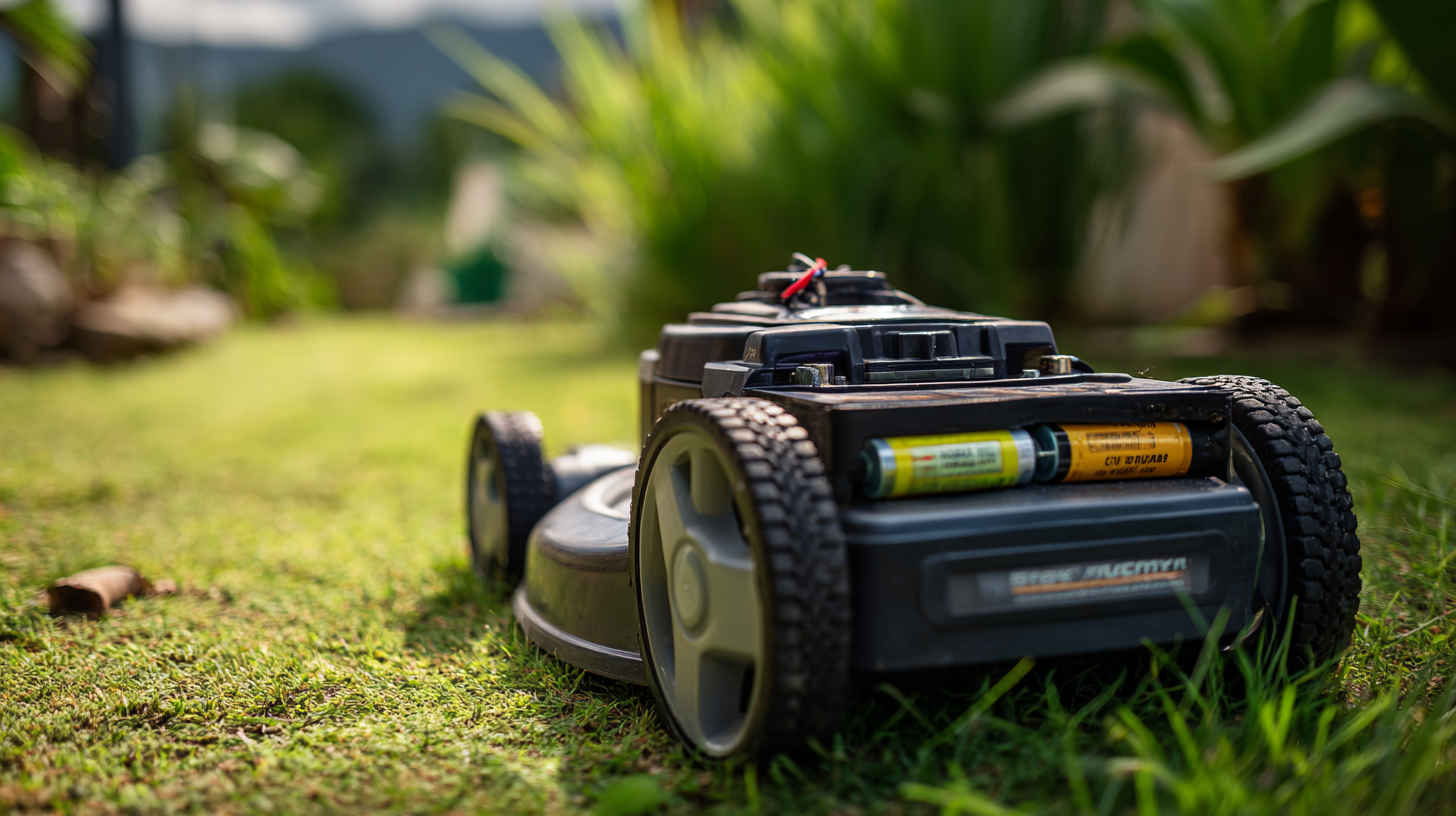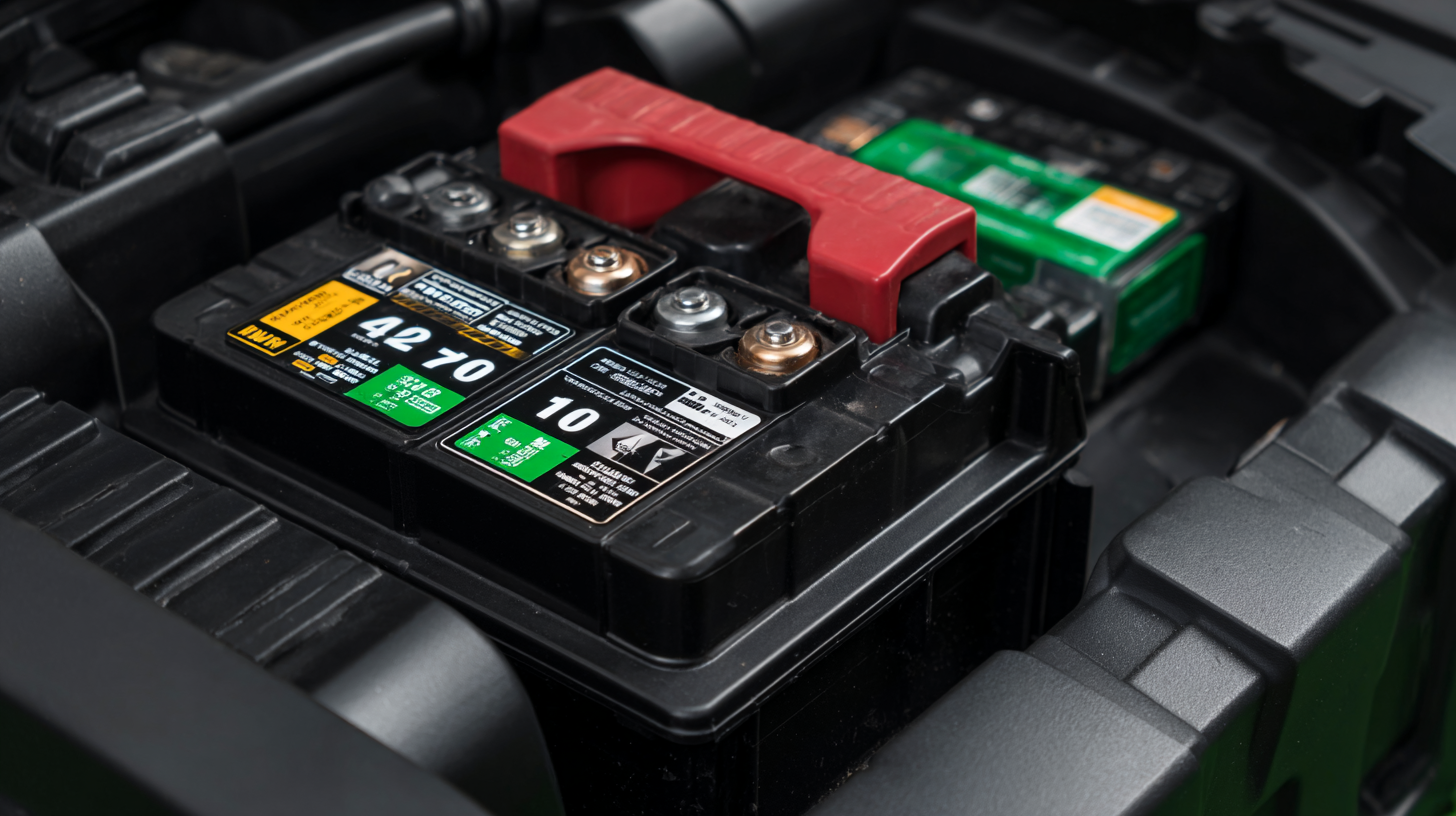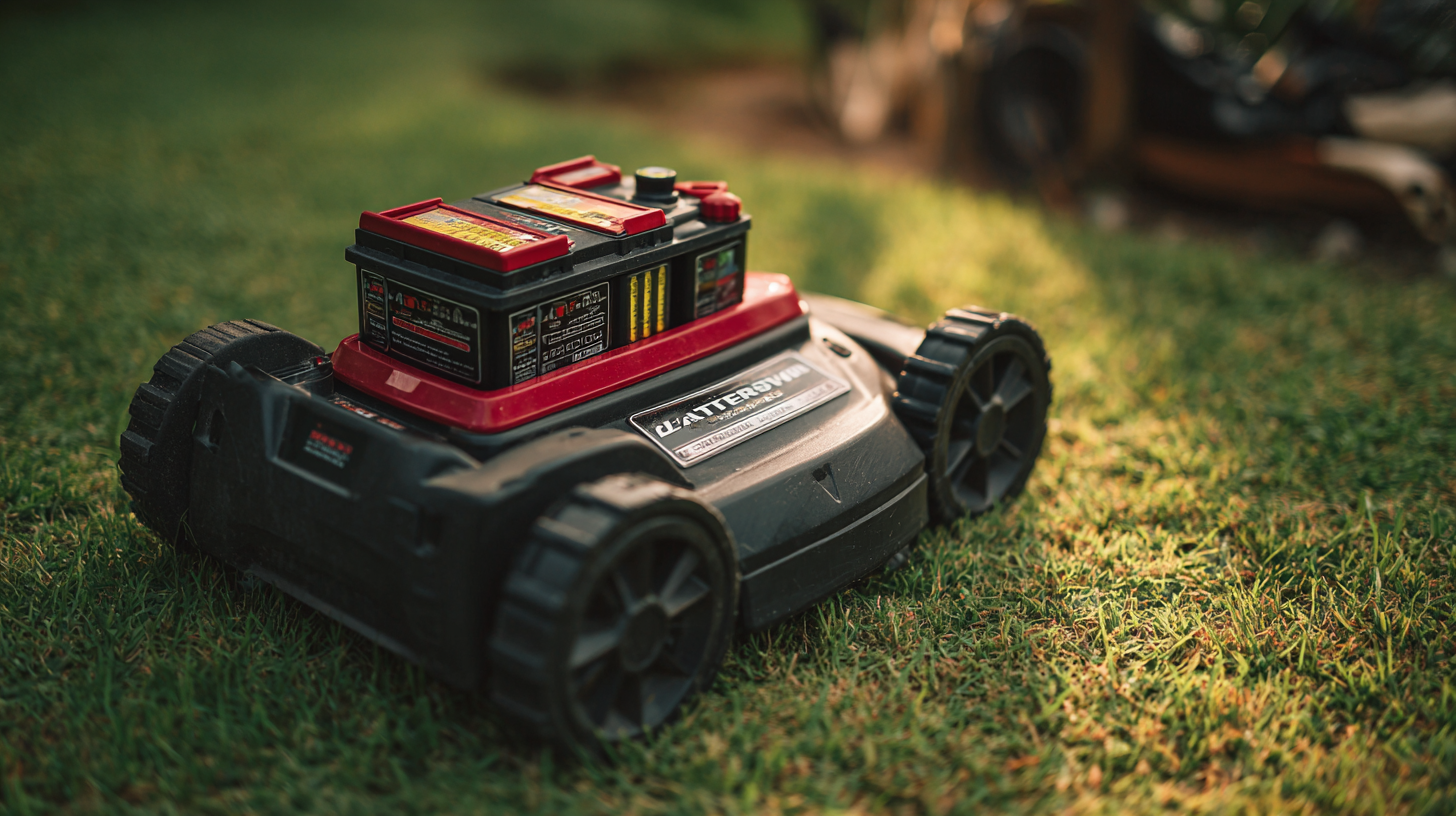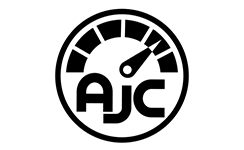What are the Key Features of Lawn Mower Batteries You Should Know?
When it comes to maintaining a lush and healthy lawn, understanding the key features of lawn mower batteries is crucial for both efficiency and performance. As the demand for electric lawn care solutions continues to rise, with projections indicating a compound annual growth rate of 6.3% in the electric lawn equipment market through 2026, knowing the specifications of lawn mower batteries can significantly impact a user’s experience. Modern battery technologies, such as lithium-ion, not only enhance the runtime and reduce charging times but also contribute to a more sustainable approach towards lawn maintenance. According to a recent industry report, over 70% of consumers are transitioning to battery-powered lawn mowers, underscoring the importance of understanding their capabilities, voltage ratings, and proper maintenance to extend their lifespan. This article will delve into the essential aspects of lawn mower batteries, empowering users to make informed decisions for their gardening needs.

Understanding Different Types of Lawn Mower Batteries and Their Applications
When it comes to lawn mower batteries, understanding the different types available is crucial for selecting the right power source for your gardening needs. The two most common types of batteries are lead-acid and lithium-ion. Lead-acid batteries are typically less expensive and widely used, making up about 40% of the battery market for lawn care equipment. However, they are heavier and have a shorter lifespan, typically lasting around 3-5 years. In contrast, lithium-ion batteries are becoming increasingly popular due to their lightweight design and longer lifespan, often exceeding 10 years. Reports show that demand for lithium-ion batteries is expected to grow by over 30% annually in the coming years, reflecting a shift towards more powerful and efficient options.
Tips: When choosing a battery, consider the voltage needed for your specific mower. Most residential lawn mowers operate between 12V to 36V, while commercial mowers may require 48V or more for optimal performance.
Additionally, it's essential to assess the battery's capacity, usually measured in amp-hours (Ah). Higher capacity batteries can power your mower for longer periods, especially for larger lawns. Always check for compatibility with your mower model to ensure peak performance.
Key Specifications to Look for in Lawn Mower Batteries
When selecting a lawn mower battery, several key specifications should be at the forefront of your decision-making process. Firstly, the voltage of the battery is crucial, as it determines the power output for efficient mowing. Most lawn mowers operate on 12V, 24V, or even 48V systems; hence, ensuring compatibility with your mower is essential for optimal performance. Additionally, the amp-hour (Ah) rating indicates the battery's capacity and runtime. A higher Ah rating translates to longer operating time, allowing you to complete larger areas without needing a recharge.
Another important specification to consider is the type of battery technology used. Lithium-ion batteries are becoming increasingly popular due to their lightweight, longer lifespan, and faster charging capabilities compared to traditional lead-acid batteries. It's also worth noting the battery's cold-cranking amps (CCA), which can ensure reliable performance even in cold weather conditions. Lastly, pay attention to the warranty and expected lifespan, as these factors can offer insights into the battery's overall quality and durability, ultimately influencing your investment in lawn care equipment.
Key Features of Lawn Mower Batteries
Tips for Proper Maintenance and Longevity of Your Lawn Mower Battery
Proper maintenance of your lawn mower battery is essential for ensuring its longevity and optimal performance. One of the most important tips is to regularly check the battery's charge level. Keeping it adequately charged not only enhances efficiency but also helps prevent deep discharges that can harm its lifespan. Additionally, cleaning the battery terminals regularly is crucial. Corrosion buildup can impede the battery's performance, so using a mixture of baking soda and water to clean the terminals can significantly improve connectivity.
Another key aspect of battery care is proper storage, particularly during the off-season. If you live in an area with harsh winters, it’s wise to remove the battery and store it in a cool, dry place. This protects it from extreme temperatures that can lead to deterioration. Furthermore, consider using a battery maintainer or trickle charger during storage to keep it in good condition. By following these maintenance tips, you can maximize the life of your lawn mower battery and ensure reliable power for all your mowing needs.

How to Choose the Right Lawn Mower Battery for Your Needs
When selecting the right lawn mower battery, the first step is to determine the voltage requirements of your mower. Most lawn mowers operate on either 12-volt or 24-volt batteries. It’s essential to consult your mower’s manual to ensure compatibility. Additionally, consider the amp-hour (Ah) rating, which indicates how long the battery can run at a specific load. For extended mowing sessions, a higher Ah rating is preferable.
Another critical factor is the type of battery technology. Lead-acid batteries are typically more affordable but heavier and may require more maintenance. In contrast, lithium-ion batteries are lighter, have a longer lifespan, and offer a faster recharge time, making them increasingly popular among homeowners.
Lastly, look for batteries with a warranty to ensure protection against manufacturing defects and to help provide peace of mind regarding your investment. By considering these aspects, you can choose a lawn mower battery that meets your unique needs and ensures reliable performance for your gardening tasks.
Signs of a Failing Lawn Mower Battery and When to Replace It
A failing lawn mower battery can pose risks beyond just the inconvenience of a non-starting mower; it can also lead to dangerous situations like fires. Recent reports have highlighted incidents where improper storage of battery-powered mowers resulted in garage fires, underscoring the importance of timely battery maintenance and replacement. Homeowners should be vigilant for signs of battery failure such as swelling, leaks, or a noticeable decrease in performance. Often, a battery that struggles to hold a charge or shows irregular charging patterns indicates it's time for a replacement.
To extend the life of your lawn mower battery and prevent emergencies, consider the following tips: Regularly inspect battery terminals for corrosion, as this can affect connectivity and power flow. Ensure that the mower is stored in a cool, dry place to avoid heat buildup, which can exacerbate battery failure. Additionally, maintaining proper charging habits—such as not overcharging or letting the battery discharge completely—can help prolong battery life and functionality.
Monitoring your lawn equipment’s battery condition and performing routine checks can save you from unexpected expenses and hazards. The industry estimates that most battery failures result from neglect and poor maintenance, so staying proactive about battery care can lead to a more reliable and safer mowing experience.

